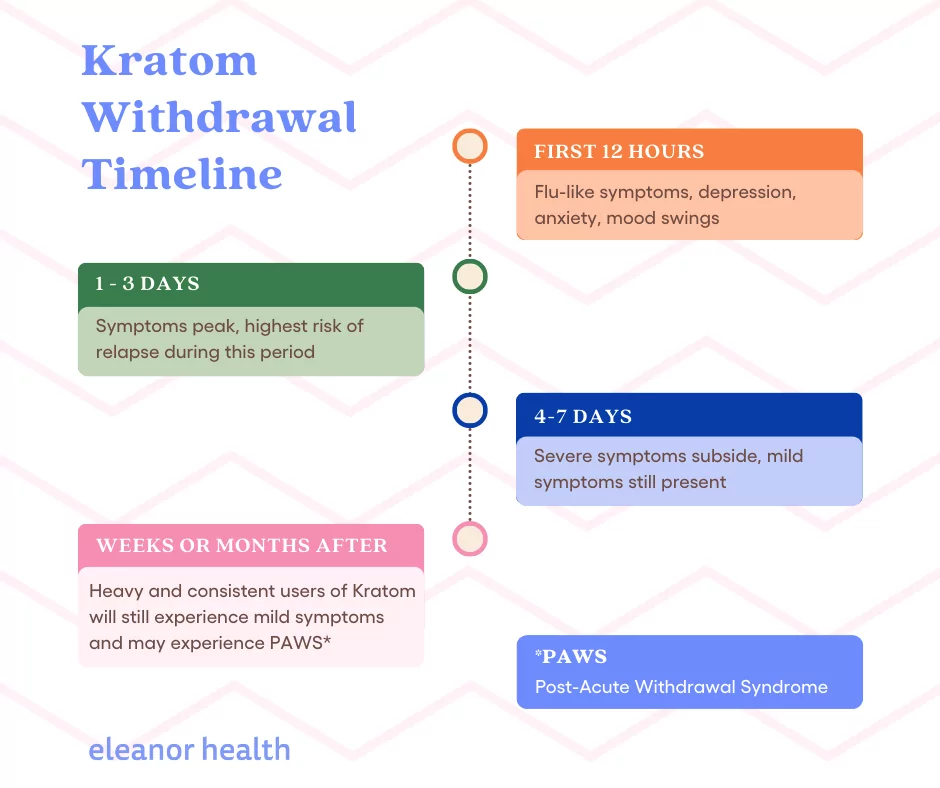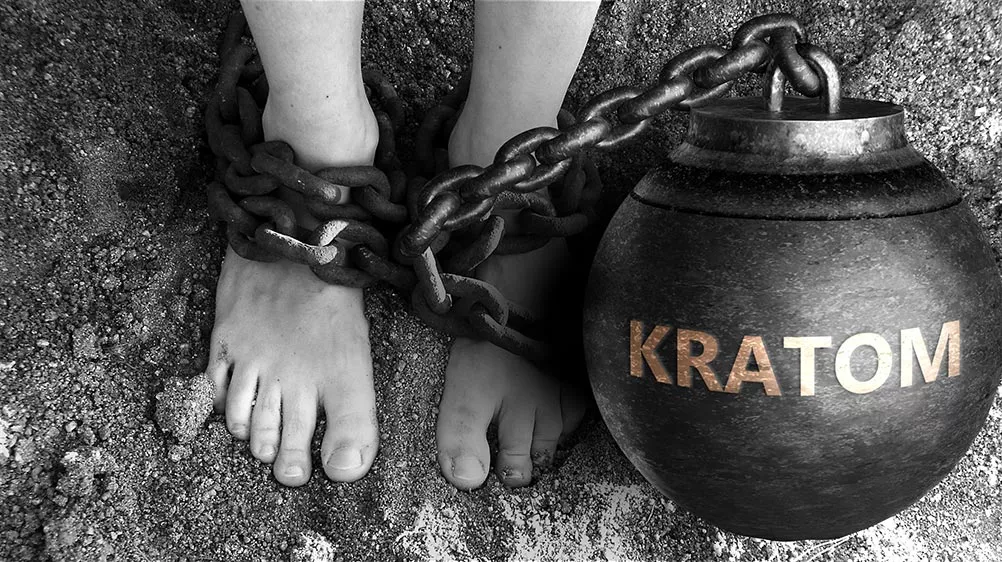Kratom (Mitragyna speciosa) is a tropical plant native to Southeast Asia and certain parts of Africa. It has a long history of medicinal and ceremonial use and belongs to the coffee family. The leaves of Kratom contain compounds that can have mind-altering effects, and it is available in various forms such as dried leaves, capsules, tablets, liquids, and resin. Kratom is now an increasingly popular alternative therapy and the drug of choice on the recreational drug market in the United States.
Kratom extracts and leaves are used as a stimulant and a sedative. It’s also been used for treating chronic pain, digestive ailments and as a treatment for opioid withdrawal, although it hasn’t been approved by the U.S. Food and Drug Administration (FDA) for any medical use.
This substance is usually marketed and sold in stores that sell supplements and alternative medicines. It is also widely available to be purchased online or even from farmers’ markets throughout the United States. While extensive research is still needed to fully comprehend the long-term effects of kratom, medical experts warn of its potential for addiction, misuse, and dependence.
The two main compounds in Kratom leaves, mitragynine, and 7-α-hydroxymitra-gynine, interact with opioid receptors in the brain. These compounds produce sedative effects when consumed in large doses and stimulant effects when consumed in small doses. Doctors believe that Kratom attaches itself to the same parts of a nerve cell as opioid painkillers and, as such, causes similar effects in the brain. But there remains no adequate clinical trials or studies to help understand the long-term health effects or how it works and why. However, due to its capacity to cause serious side effects and dependence, several states in the U.S. have banned Kratom products.
Kratom can cause effects similar to both opioids and stimulants. According to the European Monitoring Centre for Drugs and Drug Addiction (EMCDDA), a few grams of Kratom produces stimulant effects, and a large dose between 10 to 25 grams of dried leaves can cause sedative effects. These effects usually start within 10 minutes after ingestion and can last from 1 1/2 to 6 hours, depending on your dosage.
Some of the most commonly reported side effects include:
Kratom ingested even in low doses can cause severe side effects like hallucinations and lack of appetite. It is also known to have potentially deadly interactions when consumed along with other drugs or medications. And as a result, the CDC poison centers receive many alerts of Kratom overdose each year.
While there isn’t adequate research about what happens when kratom and alcohol are mixed, looking at the properties of these compounds individually will give you a clear idea of the potential risks.
Alcohol is a depressant, which means it interferes with the central nervous system’s ability to function. It also prevents nerve receptors from sending signals to the brain. Perceptions, mobility, and senses are all altered as a result. Kratom, on the other hand, acts as a stimulant as well as a sedative. In general, combining a depressant with a stimulant or a sedative can be harmful. With this in mind, it’s best not to combine kratom and alcohol together.
Many combine these two substances to intensify the effects of alcohol. Such people claim that mixing even a very small dose of kratom with a small quantity of alcohol intensifies the effects. However, as with all drug combinations, it is not safe nor advisable to use even small doses of kratom with alcohol. This is because the depressant effects of alcohol can cancel out the stimulant effects of kratom and cause a person to increase their kratom dose. When the person then indulges in more kratom, the depressant effects of kratom predominate and lead to an even more dangerous situation.
Some of the symptoms of kratom and alcohol-related overdose are:
According to a 2017 report by the Centers for Disease Control and Prevention (CDC), kratom was present in the bodies of around 152 people who died of a drug overdose. And of this, around 19 people also had alcohol in their bodies. Although there isn’t enough data to confirm the role of kratom in such deaths, the possibility cannot be ignored. As such, it is highly advised to avoid combining kratom with alcohol.

To overcome kratom withdrawal symptoms and break free from dependence, it is crucial to recognize the signs and symptoms. However, it is important to note that not all kratom users will experience the withdrawal process, especially those who consume it in moderation.
Regular users of kratom are more likely to undergo withdrawal symptoms as they develop both tolerance and dependence due to prolonged usage. Common physical withdrawal symptoms may manifest, including jerky movements, runny nose, watery eyes, insomnia, muscle aches, dilated pupils, blurred vision, severe abdominal cramps, nausea, vomiting, decreased appetite, changes in heart rate and blood pressure, seizures, diarrhea, sweating, hot flashes, and fever.
Psychological withdrawal symptoms can also occur, such as changes in mood, anxiety, depression, irritability, and agitation. Heavy and consistent users may additionally experience post-acute withdrawal syndrome (PAWS), characterized by recurring waves of anxiety, depression, and insomnia. These symptoms may persist for several weeks or even months before subsiding.
The onset and duration of withdrawal symptoms depend on the dosage and duration of kratom use. Additionally, the timing of the last dose plays a role in the appearance and duration of withdrawal signs. Typically, kratom withdrawal symptoms manifest between 12 and 24 hours after the last dose and may last anywhere from three to seven days. The withdrawal timeline can be summarized as follows:
First 12 Hours: Within this period, individuals commonly experience flu-like symptoms, depression, and anxiety.
Days 1-3: Symptoms tend to peak during these initial days, presenting the highest risk of relapse.
Days 4-7: Severe symptoms gradually subside during this phase. However, individuals experiencing PAWS may still encounter mild symptoms.
While severe symptoms generally diminish within a week, some individuals, especially heavy users, may continue to experience milder symptoms for several months or even years. Psychological symptoms, such as mood swings, depression, anxiety, and cravings, may persist as well.
Abruptly discontinuing kratom use is not advised, as it may result in adverse reactions. It is highly recommended that individuals seek detoxification under the supervision and guidance of physicians or addiction specialists to minimize associated risks. Medical professionals assist in gradually reducing kratom dosage to alleviate cravings and withdrawal symptoms during the detox process.
Breaking free from kratom dependence and navigating the withdrawal process requires support, guidance, and a comprehensive treatment approach. By seeking professional assistance and adhering to an individualized recovery plan, individuals can embark on a path to reclaim their lives and regain control over their well-being.
Yes, Kratom can be addictive. The U.S. Food and Drug Administration (FDA) has expressed concerns about Kratom use due to its impact on opioid brain receptors, similar to morphine. Kratom contains properties that can expose users to the risks of addiction. Regular use of Kratom has been known to lead to dependence and addiction in some individuals, and withdrawal symptoms may occur when usage is discontinued. These symptoms can include muscle pain, insomnia, irritability, nervousness, mood swings, aggression, fever, diarrhea, and unsteady movements.
The detection of kratom in a person’s system can be complex because it is not typically included in standard drug panels. However, specialized tests, such as a 10-panel drug test for kratom and its metabolites, can detect its presence in urine for up to seven days.
Several variables can affect the length of time kratom is detectable in the system. These include body weight, as mitragynine (the active compound in kratom) is fat-soluble and tends to stay longer in the systems of individuals with more body fat. The dosage of kratom used, age (as older individuals metabolize drugs more slowly), and the combination of other drugs, especially alcohol, can also impact the elimination rate of kratom from the body. Additionally, a person’s health, individual metabolism, and certain medical conditions can influence the duration of kratom in the system.
Kratom is currently legal in the United States, but it is important to note that its legality varies across different countries and states. In the United States, some states have implemented the Kratom Consumer Protection Act (KCPA) to regulate its sale and use, while others have taken steps towards a legal but regulated approach. However, Kratom is illegal in Thailand, Australia, Malaysia, and several European Union countries. Additionally, certain states in the U.S. have enacted the Controlled Substances Act (CSA) to protect consumers against unregulated products, which may include synthetic Kratom or other dangerous substances.
While Kratom has risks associated with its use, including the potential for dependence and addiction, it is also important to be aware of other safety concerns. The FDA has identified that certain Kratom products may contain dangerous levels of metals. According to the Centers for Disease Control and Prevention (CDC), Kratom has been linked to 91 deaths out of over 27,000 overdose deaths in 27 states between July 2016 and December 2017. The National Institute on Drug Abuse (NIDA) attributes many of these deaths to dangerous interactions with other substances, including opioids. Moreover, as the active ingredient in Kratom can vary widely by plant, the effects can be unpredictable, leading to an increased risk of overdose and serious side effects such as seizures, hallucinations, chills, vomiting, liver damage, or even death. The FDA has also taken measures to address the sale of Kratom as a treatment for opioid addiction and other conditions, warning the public about potential contamination with harmful bacteria or other dangerous substances.
If you are seeking help with your loved one’s addiction, contact us today or complete our quick contact form below, to speak with an addiction treatment specialist.
If you need help with your substance use disorder, we are here to help you build your confidence and momentum towards the future you want. We provide treatment services for adults with alcohol, opioid, and other substance use disorders. We are currently located in Louisiana, Massachusetts, North Carolina, New Jersey, Ohio, Texas, and Washington.
 How Addictive is Kratom?
How Addictive is Kratom?
 Identifying and Treating Symptoms of Benzodiazepine Withdrawal
Identifying and Treating Symptoms of Benzodiazepine Withdrawal
 Benefits of Online Addiction Treatment
Benefits of Online Addiction Treatment